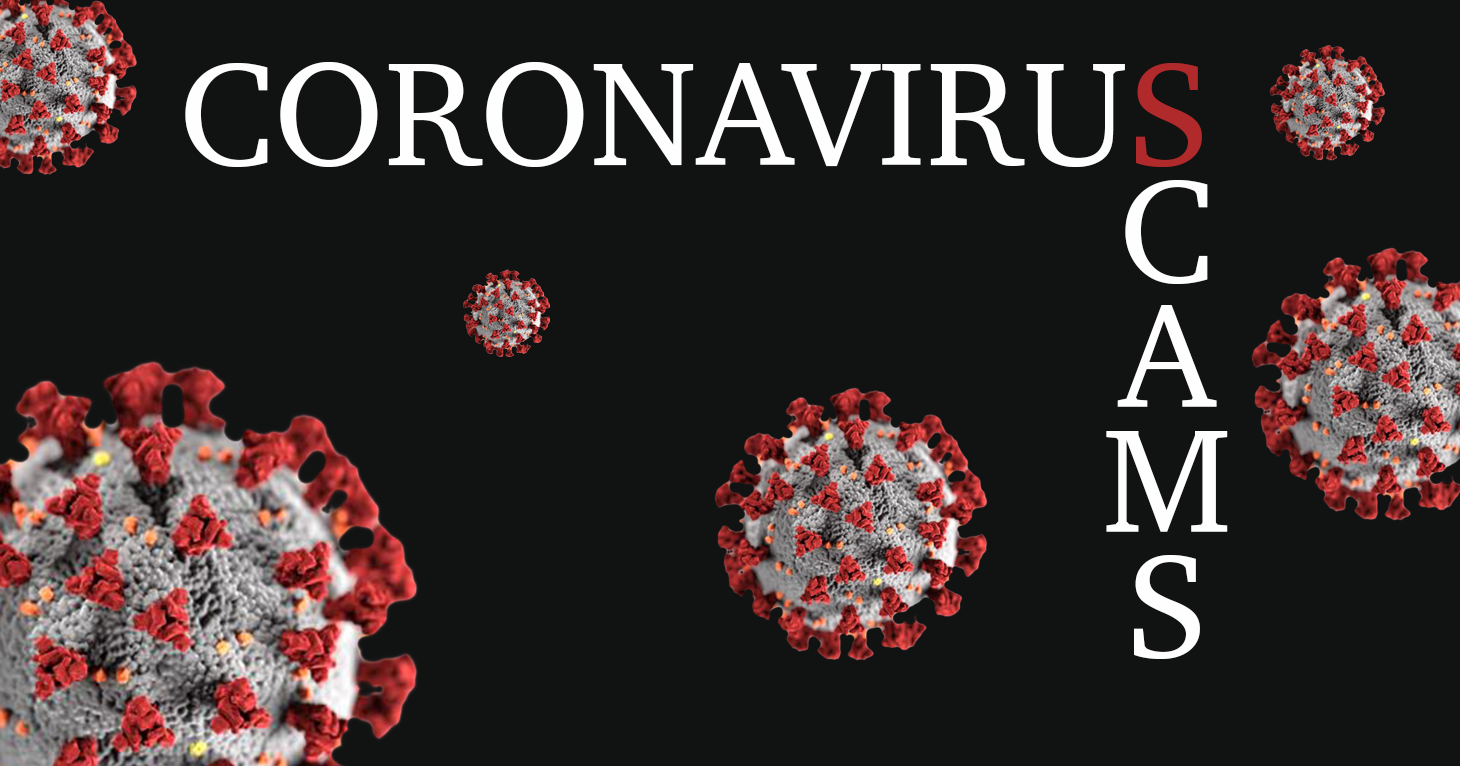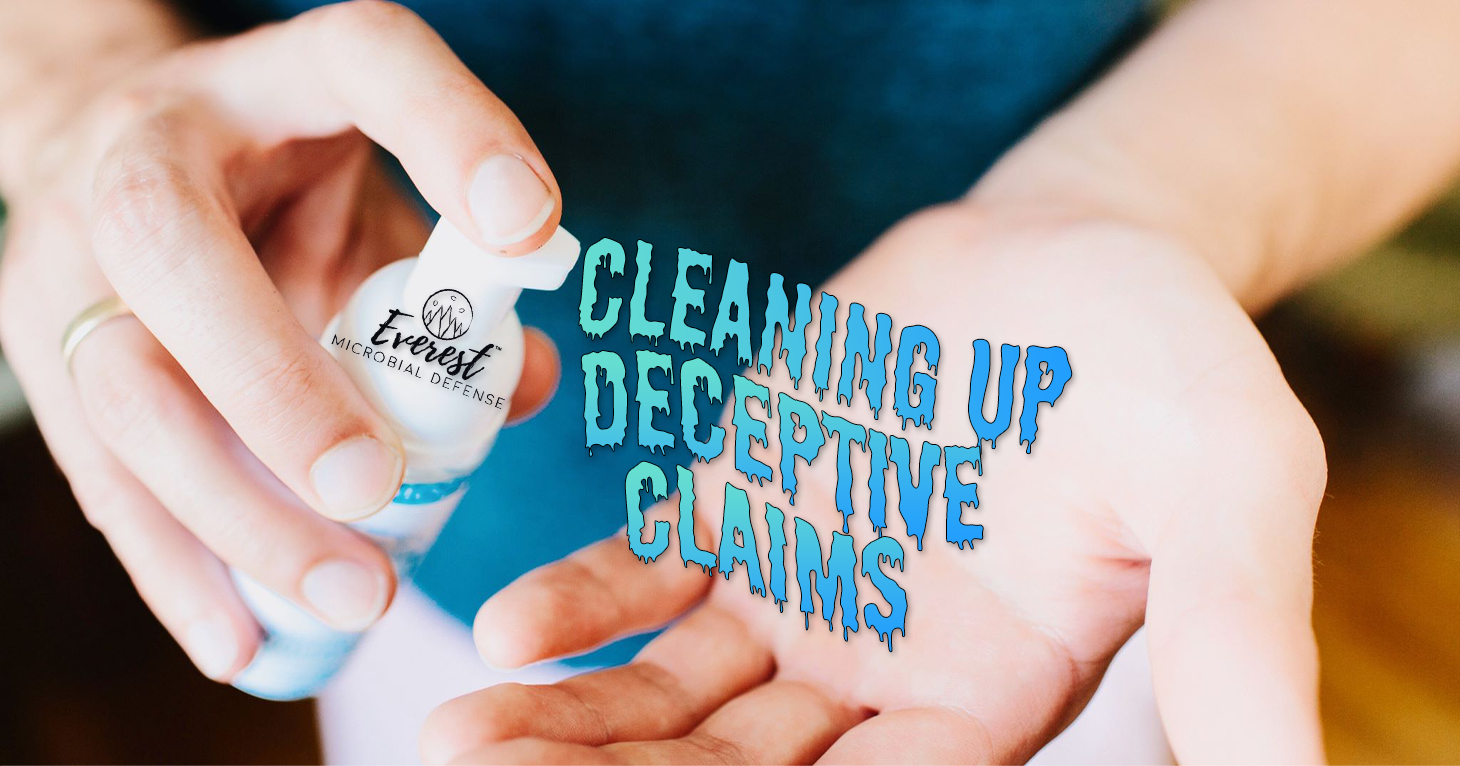
A Growing List of Coronavirus Scams
A master list of known and alleged scams.
Company had claimed the key ingredient in its "system of protection" was proven to "kill" the coronavirus.
The maker of a line of alcohol-free hand sanitizers and surface cleaners has removed from its marketing deceptive claims that its products “kill” the coronavirus in response to a recent warning letter from TINA.org.
Among the discontinued claims is a “COVID-19 Testing Statement” that had been plastered across the website and social media pages belonging to Colorado-based Everest Microbial Defense that extolled the purported effectiveness of the key ingredient in the company’s product line. It stated (emphasis added):
The key ingredient in the Everest Microbial Defense system of protection has been proven to clean surfaces, kill the Covid-19 virus and continue to protect surfaces for an extended period of time.
In a post on its website titled “You Have Questions, We Have Answers,” Everest identifies the “active sanitizing ingredient” in its hand sanitizers, including its 24 Hour Defense Foaming Hand Purifier, as benzalkonium chloride, which Everest says “has a long history as an effective sanitizing agent.”
However, it wasn’t that long ago, in April 2019, to be exact, that the FDA excluded benzalkonium chloride (among two other ingredients) from its final rule on OTC hand sanitizers, citing the need for further studies to determine the ingredient’s safety and effectiveness. More recently, in a guidance for health care providers about hand hygiene and COVID-19, the CDC stated that “available evidence indicates benzalkonium chloride has less reliable activity against certain bacteria and viruses” than the alcohols in the hand sanitizers it recommends people use.
Moreover, benzalkonium chloride is the same active sanitizing ingredient found in Prefense hand sanitizers, whose COVID-19 prevention and treatment claims were the subject of an FDA warning letter last month. (To be clear, any hand sanitizer marketed to prevent or treat disease is violating the law if it doesn’t have competent and reliable scientific evidence to support the claims, in addition to FDA approval.)
But while the website and product packaging represent that the active ingredient in the company’s hand sanitizers is benzalkonium chloride and the active ingredient in its surface cleaners is this chemical, in response to TINA.org’s April 30 warning letter, Everest said the “key” ingredient in its product line was something else entirely. (According to Everest’s marketing, after the active ingredient evaporates, it leaves in its wake “an invisible blanket of molecular spikes,” which the company calls EV360, that “impale microbes and bacteria once they come in contact with this molecular frontline.”) In response to a request for comment for this article, Everest Founder Mark Whaley did not answer a question asking whether the company disputes that the active ingredients listed on its website and product packaging are the active ingredients in its hand sanitizers and surface cleaners.
More importantly, as of this writing, all of the marketing materials collected by TINA.org that had specifically referenced COVID-19 have either been deleted or edited to remove the deceptive COVID-19 claim. As a result, TINA.org has not notified government regulators at this time but will continue to monitor Everest’s marketing.
Whaley said in an emailed statement to TINA.org, “Although we did not agree with the assessment by TINA that any of the materials on our web site were deceptive, we in good faith attempted to remove all of the verbiage that TINA had taken exception to.”
Everest, however, continues to cast alcohol-based hand sanitizers that it claims offer only temporary protection as the “problem” and its alcohol-free hand sanitizers as the “solution.” Meanwhile, the CDC continues to recommend people use a hand sanitizer that contains at least 60 percent alcohol when washing with soap isn’t an option.
Find more of our coverage on the coronavirus here.
A master list of known and alleged scams.
TINA.org investigation also finds sellers using the FDA’s logo in violation of the agency’s logo policy.
The bottom line: Only FDA-approved drugs can be marketed to prevent disease.


